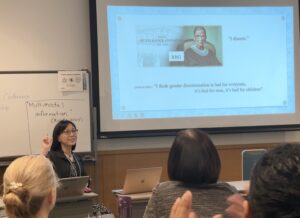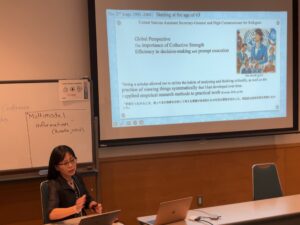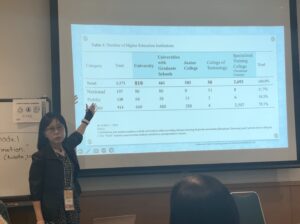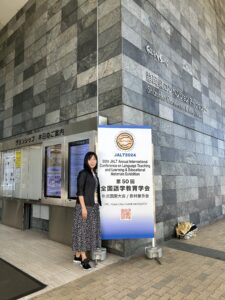50th JALT Annual International Conference in Shizuoka
The importance of education in women‘s social advancement is indispensable.
The Power of Education in Advancing Women: Lessons from RBG and Sadako Ogata (GALE SIG)

Breaking the Glass Ceiling The phrase brings to mind Ruth Bader Ginsburg, RBG, known to many. She served as a Supreme Court Justice from 1993 until her death in 2020. Her life story serves as a model for many generations in the U.S. RBG’s mother knew the importance of education, so she taught her child to love learning. She also did not see education as something that served one gender over the other. She motivated her children to appreciate both education and independence. I believe that this teaching from RBG’s mother represents an important message about the value of education. She started at Harvard Law School in 1956 as one of only 9 women out of 500 students. RBG graduated from Columbia Law School at the top of her class. But no law firm would hire her. Back in the 1960s, RBG had difficulty getting a job. In the beginning, RBG had difficulty establishing her legal career. RBG was appointed as a Supreme Court Justice in 1993. “Fight for the things that you care about but do it in a way that will lead others to join you.” This quote reflects RBG’s approach to advocacy and leadership, encouraging others to stand for their beliefs in a way that inspires others to come together and create positive change./

Ogata Sadako had three important qualities: the ability to work with people from different countries, skill in English, and strong knowledge of her field. She met these requirements and became the first Japanese United Nations High Commissioner for Refugees. For ten years, she dealt with refugee problems in many countries. She changed the way refugees were protected, focusing on making the best choices to save lives. Ogata’s strengths included being quick to act and to make decisions.

The rate of women entering university is increasing, and the number of female teachers in universities is steadily rising. Compared to the time when Sadako Ogata received her higher education, the rate of women attending university has clearly gone up. In 2024, the number of female undergraduate students reached 1.2 million, marking a record high. I believe this shows that more women now see higher education as important and want to build their careers to expand their future job choices.

